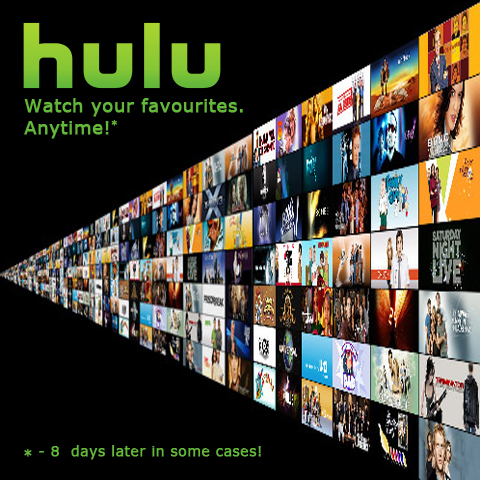Big Media Companies are still largely out of step with Consumer Needs

I was a little sad to see that Google TV failed to take off, as I really saw it as the perfect solution to my viewing requirements. I spend most days and several nights working on my 27" iMac, which has ended up as my proxy television set as well. I am so grateful to the various terrestrial TV on-demand services, best exemplified by the BBC’s iPlayer, but pretty much every major terrestrial Channel has one now:
BBC - iPlayer
ITV - ITV Player
Channel 4 - 4 on Demand (4oD)
Channel 5 - Demand 5
I almost never watch anything live any more - I can schedule my TV viewing around my work, rather than the other way around.
In addition to the various ’on demand’ services, there is the fantastic ’TV Catchup’ service for UK viewers, which allows you to follow some live programming online should you wish. There are also the ’new money for old rope services’ - ’Blinkbox’ and ’YouView’ where the BBC amongst others charges the public again for watching repeats of programmes they paid for with their TV licence.
Apple’s iTunes Service is another resource I find very useful, as this is now my chief ’Video Rental’ as such; I also buy the occasional TV series from here, but it is typically cheaper to buy a whole series DVD on Amazon or eBay. This is not necessarily Apple’s fault, media companies are too greedy on the price-point, meaning that the majority of viewers tend to choose to watch a dodgy pirated torrent download rather than an over-priced but quality download from official sources (that is if the programme is available online through official sources at all!).
In the US, they have 3 great TV / video aggregators - that is to say proper cross-channel on-demand services - Amazon VOD, Hulu and Netflix. Hulu has long tried to make inroads into the UK, but the terrestrial broadcasters won’t licence their programmes to Hulu. We really need more competition here to shake up the domestic market a little bit.
Referencing the main picture, an interesting Hulu-related story is currently circulating on the net, since Fox Broadcasting introduced an 8 day delay on one-off programme purchasing / viewing. The summary is as follows: if you’re on a Hulu+ subscription you can pretty much watch what you want when you want. If you pay individually for programmes, Fox has introduced a mandatory 8 day delay on their series - so in effect a user choosing this purchasing model / option misses 2 weekly episodes before they can catch up. Fox is using various arguments, including the significant need to achieve viewership ratings. Alas, the end result of this is a huge growth in pirate / illicit viewing of those programmes affected - as I would obviously have thought would be the case.
A number of things need to change here - the way ratings are measured needs to change, much like the music charts shifted from CD + Vinyl to Downloads. On-demand and download viewing will very soon overtake live television viewing - particularly seeing how many people are acquiring tablet devices - which are perfect for this kind of video viewing.
The market is still very fragmented - my favourite TV producer is HBO, and if I could I would actually love to be able to subscribe online to everything they produce - but this option is not available. The perfect system would be a large-scale content aggregator like Google TV - where everyone can get a cut of the action by legal and proper means, and the viewer has true - anytime access to global TV content. I tend to follow a lot of American TV shows, and unfortunately, often the only means of watching some of these series is via illicit streaming sites and torrents, which I really try to stear clear of.
I subscribe to all manner of US-centric blogs and get exposed to US content every day - things like Jimmy Fallon, Jimmy Kimmel and Saturday Night Live - which are not made available to UK viewers. I often find myself blocked by MTV USA, ABC, NBC and the like - where I would be quite happy to pay for access. Media needs to be sold more like produce! So that you can choose your supermarket - and get everything, rather than have to chase around individual country-specific stores.
There are further problems with viewing DVDs on your desktop or laptop, as Apple penalises its users with region-specific playback, which is totally at odds with the free-flowing modern world of international business travel. Media companies need to realise that as soon as something is available, all terriritories should be able to buy access to said media - if any territory gets excluded, it’s basically open season for pirates and black-market operators.
I don’t just have the problem with TV and Video, I also experience issues with obtaining music which has only been released in a certain region - although there are now enough proper resources that deal with this, so I am mostly able to obtain what I want / need. One thing that totally mystifies me though concerns software - as a Shark enthusiast, I was excited to see that the Discovery Network had produced an ’Ultimate Sharks’ app for the the iPad, but... it’s only available on the US iTunes!!! This makes no sense at all to me; I am quite well versed in Americanized ’english’ by now to be able to wade through trans-Atlantic semantics, yet these media companies bizarrely restrict access to their Apps to North American citizens. ’Ultimate Sharks’ is just one of half a dozen apps that has been restricted in this way recently.
Human connections and friendships are totally fluid and cross-boundary. I have friends all over the world, and I like to be able to share their media experiences - in being able to buy / access the same media that they do and can - share views, opinions etc..
To date, the only truly proper universal media delivery model is ’Internet Radio’. Book publishing is unfortunately hamstrung by the same crass logic as video and software - in that some titles are much slower to be released in certain territories.
As the world gets ever more switched-on and connected, it will be the rapid response service providers that win out - in whatever form they take. iTunes is still far away from fully representative of what should be available, catering really only for very mainstream tastes. Anyone with more of an interest in Art-House films and more independent producers, will find really very slim pickings from Apple.
I know that Google has a multi-pronged strategy via the not-yet-dead Google TV and YouTube - to provide a broad-ranging commercial on-demand service. Amazon has also shown its intentions by buying up LoveFilm. In the meantime, Sky TV is not doing anything online really - which is a real shame, as I live in a closely built-up area with no possible satellite reception - and Sky is now the sole UK representative for HBO.
We really need Hulu and Netflix and Amazon VOD to enter the UK market to shake up the system somewhat. We need new metrics to track viewership ratings and new means of commercialisation to make up for lost advertising revenues. I cannot see why a susbcription-based multi-channel online on-demand service could not be wildly successful in the UK - apart from the crappy broadband infrastructure that is. The UK is falling further and further behind in temrs of fibre optic networking and broadband speeds. UK citizens are amongst the most avid net-citizens, yet they often have to deal with the poorest service provision - right down the chain - in terms of speed, pricing, quality and availablity.
There’s no doubt that Television is going through a step-change right now, and it’s not the set-top-box version that is important, but the Website / Mobile / Tablet / App route that will win out. Let’s have some proper service providers at reasonable prices - £0.99 per TV episode with a signficant discount for an entire series purchase (It should not be up to 50% cheaper to buy a TV series on DVD!!! - the figures don’t add up). The iTunes movie rental price is about right at the moment - circa £3.00 for regular quality and £4.50 for High Def. Apps are relatively reasonably priced at mostly £0.69 - £4.99 (iPhone / iPad); but the Music Industry is still too greedy. A fair price for a single should be the same as a basic app - £0.69, and a downloaded album should be no more than circa £5.99 really, which is exactly the price that Radiohead set for their latest album (rounded up by a penny actually to £6.00 for MP3 download - a fair and decent price).
It seems that too many of these media companies are totally unfamiliar with conjoint analysis on proportional pricing. If you set the price too high, far fewer will buy, and more will download pirated and illegal versions. Get the price point right, and enough people will buy to make it worthwhile for everyone. The continuing crusade against file-sharing sites is not the right approach to the problem, the right approach is a lower and more accessibly price point with discounts on accumulative purchases! Someone please wake up and smell the coffee!

Did you find this content useful?
Thank you for your input
Thank you for your feedback
Upcoming and Former Events
Affino Innovation Briefing 2024
Webinar - Introduction to Affino's Expert AI Solutions - Session #2
Webinar - Introduction to Affino's Expert AI Solutions - Session #1
PPA Independent Publisher Conference and Awards 2023
Meetings:
Google Meet and Zoom
Venue:
Soho House, Soho Works +
Registered Office:
55 Bathurst Mews
London, UK
W2 2SB
© Affino 2024

















